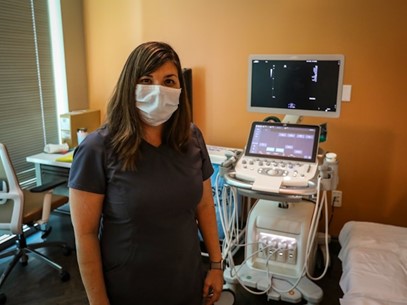Healthcare is a dynamic and multifaceted industry, offering a wide range of career paths for individuals interested in making a positive impact on people’s lives. Whether you aspire to work directly with patients or behind the scenes, the healthcare field provides opportunities to match diverse skill sets and interests. In the following article, the International College of Health Sciences highlights various career paths within the healthcare industry, highlighting roles such as nursing and diagnostic sonography.
Nursing: The Heart of Healthcare
Nursing is one of the most well-known career paths in healthcare, often described as the heart of the industry. Nurses play a critical role in patient care, providing direct support to patients, administering medications, and assisting physicians in various medical procedures. The nursing field offers a range of specialties, including:
- Registered Nurse (RN): RNs are responsible for patient care, health education, and collaborating with other healthcare professionals. They work in hospitals, clinics, schools, and other healthcare settings.
- Licensed Practical Nurse (LPN)/Licensed Vocational Nurse (LVN): LPNs/LVNs provide basic patient care, such as taking vital signs, administering medications, and assisting with daily activities.
Understanding the Role of a Nurse Practitioner
Nurse practitioners (NPs) are advanced practice registered nurses who play a pivotal role in the healthcare system. They possess a high level of clinical expertise, allowing them to deliver primary and specialized care to patients. With the ability to diagnose, treat, and manage a variety of health conditions, nurse practitioners serve as vital healthcare providers, often bridging the gap between nurses and physicians.
A nurse practitioner is a registered nurse (RN) who has pursued additional education and training to achieve advanced practice status. NPs typically hold a Master of Science in Nursing (MSN) or a Doctor of Nursing Practice (DNP), with specialized training in their chosen area of focus. This advanced education equips them with the knowledge and skills needed to provide comprehensive patient care.
Scope of Practice
The scope of practice varies depending on state regulations and the healthcare setting in which they work. However, in many regions, NPs are authorized to perform a wide range of medical tasks, including:
- Diagnosing Illnesses and Injuries: NPs can assess patients, interpret diagnostic tests, and determine the underlying causes of illnesses or injuries.
- Prescribing Medications: In most jurisdictions, nurse practitioners have the authority to prescribe medications, allowing them to manage patient treatment plans effectively.
- Developing and Implementing Treatment Plans: NPs create individualized treatment plans for their patients, focusing on holistic care and disease prevention.
- Providing Primary and Specialty Care: Nurse practitioners can serve as primary care providers or specialize in areas such as pediatrics, family medicine, women’s health, geriatrics, or mental health.
- Performing Minor Procedures: Depending on their specialty and state regulations, NPs may be able to perform minor medical procedures, such as suturing wounds, inserting catheters, or conducting minor surgical interventions.
Responsibilities
The responsibilities of nurse practitioners extend beyond direct patient care. They play a multifaceted role in the healthcare system, including:
- Patient Education: NPs educate patients about their health conditions, treatment options, and lifestyle changes that can improve their well-being.
- Preventive Care: Nurse practitioners emphasize preventive care, conducting health screenings and promoting vaccinations to reduce the risk of illness.
- Collaboration with Healthcare Teams: NPs collaborate with physicians, nurses, and other healthcare professionals to ensure coordinated and comprehensive patient care.
- Health Promotion and Advocacy: Nurse practitioners advocate for patient rights and work to improve healthcare access and equity in their communities.
- Research and Evidence-Based Practice: Many NPs engage in research and contribute to evidence-based practices, helping to advance the field of nursing and healthcare as a whole.
Impact on Healthcare
Nurse practitioners have a significant impact on the healthcare system. Here are some ways they contribute to improved patient care and health outcomes:
NPs often serve as primary care providers, especially in underserved or rural areas, where access to physicians may be limited. Their presence helps expand healthcare coverage and ensures more patients receive timely care. By focusing on preventive care and reducing the need for emergency services, nurse practitioners can help lower healthcare costs for patients and the system at large.
They also prioritize a holistic approach to patient care, considering physical, emotional, and social factors in their treatment plans. This comprehensive approach can lead to better patient outcomes. Nurse practitioners play a crucial role in addressing physician shortages, allowing healthcare systems to meet the needs of growing patient populations.
These healthcare providers bring a unique blend of clinical expertise, compassion, and holistic care to the healthcare system. Their ability to diagnose, treat, and manage a wide range of health conditions allows them to serve as primary and specialty care providers. The role of NPs continues to expand, offering a critical solution to healthcare access and patient care challenges. As the healthcare industry evolves, nurse practitioners will undoubtedly continue to play a pivotal role in shaping the future of patient care and promoting health equity.

Diagnostic Sonography: Imaging for Medical Diagnosis
Diagnostic sonography, also known as ultrasound, is a rapidly growing field in healthcare. Sonographers use high-frequency sound waves to create images of internal organs and tissues, assisting physicians in diagnosing medical conditions. Career paths in diagnostic sonography include:
- Diagnostic Medical Sonographer: These professionals specialize in creating ultrasound images for various medical purposes, such as obstetrics, cardiology, and abdominal imaging.
- Cardiac Sonographer: Cardiac sonographers focus on imaging the heart and blood vessels, assisting cardiologists in diagnosing heart-related conditions.
- Vascular Technologist: Vascular technologists specialize in imaging the circulatory system, helping physicians identify conditions like blood clots and vascular diseases.
Diagnostic sonography enables healthcare technicians to create detailed images that assist in medical diagnosis and treatment planning. The field’s growing range of specialties, including cardiac sonography, vascular technology, and musculoskeletal sonography, underscores the importance of these professionals in modern healthcare. By providing real-time imaging and working closely with physicians and other healthcare providers, sonographers contribute to accurate diagnosis and effective treatment.
Conclusion
Healthcare offers a wealth of career paths for individuals dedicated to making a meaningful impact on people’s lives. From the compassionate care provided by nurses to the critical diagnostic capabilities of sonographers, the medical field encompasses a diverse range of roles and specialties. This variety allows individuals to find a path that aligns with their skills, interests, and career goals.
Whether you are drawn to the fast-paced environment of an emergency room or the meticulous precision of diagnostic imaging, the healthcare industry provides a dynamic landscape for growth and specialization. It’s a field that requires compassion, resilience, and a commitment to lifelong learning. As healthcare continues to evolve, professionals in these roles will play a critical part in shaping the future of patient care and promoting health equity.
The healthcare field’s adaptability and expansive range of career opportunities offer promising paths for those looking to make a difference. Whether you are interested in nursing, diagnostic sonography, or another healthcare career, there are numerous ways to contribute to the well-being of individuals and communities. By embracing the diverse roles within the healthcare industry, you can embark on a rewarding career that has the potential to transform lives.
